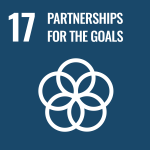
Bats are known as natural reservoirs of zoonotic viruses, which may spill over to humans and other animals. In fact, several virus outbreaks, including the COVID-19 pandemic, have been largely linked to bat species.
These bat-borne diseases are highly likely to emerge in tropical areas with rich biodiversity, such as the Philippines. The PHILBATS Project, a research collaboration of five international institutions including UPLB, is currently investigating this.
The project, “Informing biosurveillance: Contribution of pteropodid fruit bats to virus spillover in the Philippines,” is led by a team of researchers from the Institute of Biological Sciences (IBS) of UPLB, the Research Institute for Tropical Medicine of the Department of Health (DOH-RITM), the Duke-National University of Singapore Medical School (Duke-NUS), the Uniformed Services University of the Health Sciences (USUHS) of USA, and the Massey University of New Zealand.
With a One Health approach, the project studies three components: bats, humans, and livestock. Samples will be collected in the field, turned over to laboratories for screening, and then analyzed to understand and predict virus transmission risks among bats and nearby animal and human communities.
The results will then be disseminated to locals and authorities and used to help develop sustainable health-based policies and good husbandry practices.
On March 19, the PHILBATS Project presented its research progress to the public at the Umali Auditorium of SEARCA. The project kicked off in January 2023 with the obtainment of necessary permits and consent and the conduct of training sessions for field and laboratory work.
At present, the project has successfully collected samples from over 2000 fruit bats from identified sites across the Philippines through its team at UPLB. The samples are then screened for the presence of coronaviruses, filoviruses, and paramyxoviruses at the Special Pathogens Laboratory (SPL) of the RITM.
Dr. Phillip Alviola of the Animal Biology Division of IBS, who supervises the bat component of the study, expressed his excitement over their research progress. Currently in its third year, “the project is designed to present recommendations on mitigating future events.”
The research endeavor also aims to “prevent future losses,” Dr. Mary Grace Dacuma, lead of the human component and also from the UPLB Animal Biology Division, said. “It is worth doing, not only for the Philippines but also for people all over the world.” With 16 months more in the journey, the PHILBATS project seeks to provide a better understanding of animals, humans, and the environment and help contribute to a more informed, effective, and sustainable decision and policymaking. (Juvelle P. Villanueva; Photos by Kirk Taray)













